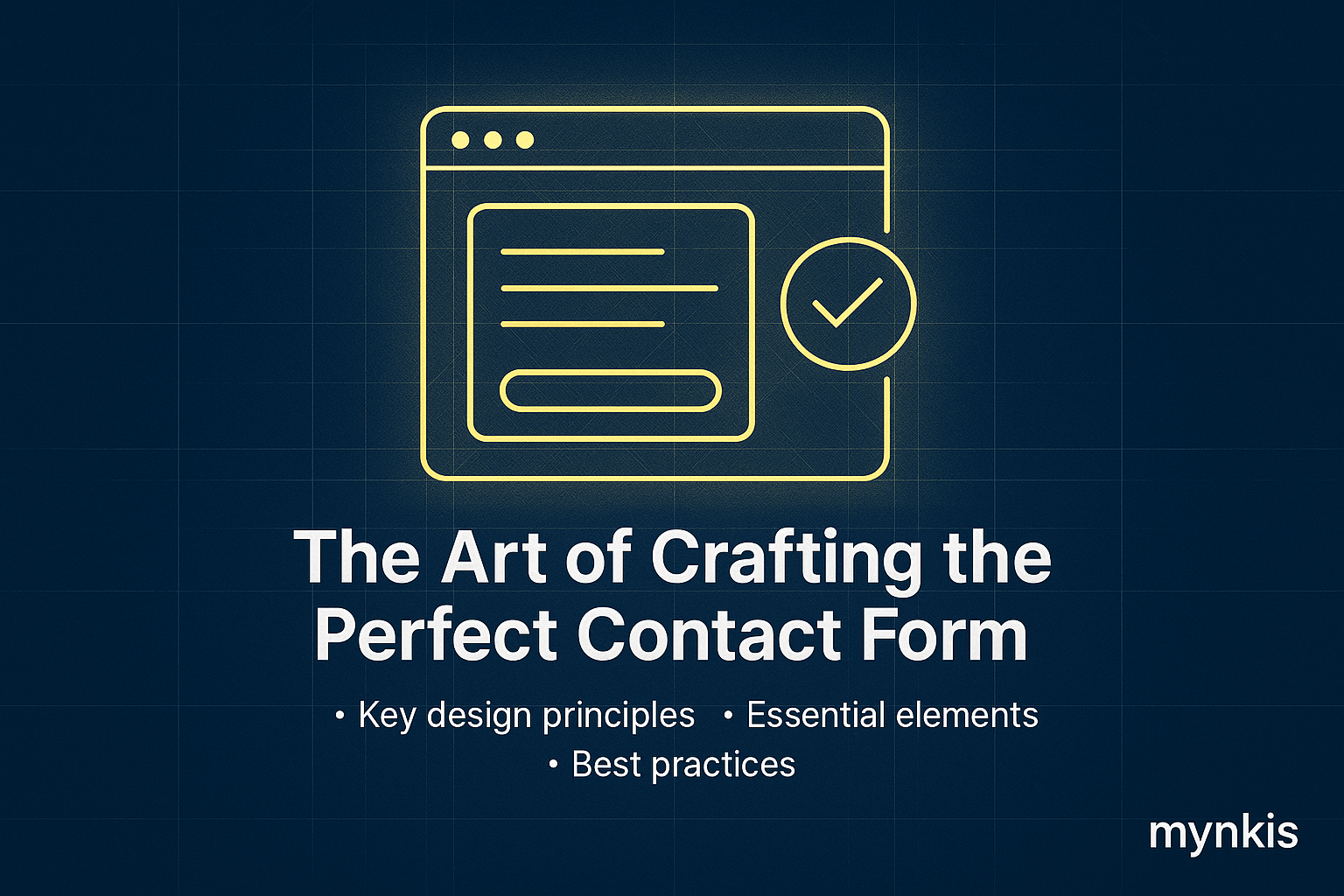Schedule a Demo
Contact forms on websites are gateways to more personal, engaging interactions between businesses and users. They're crucial in collecting leads and encouraging direct communication. For entrepreneurs and business leaders alike, understanding the impact of well-designed contact forms is essential.
So, what makes a contact form stellar? At its core, simplicity and user-friendliness are paramount. Your form should be intuitive, taking no more than a minute to fill out. Essential fields like name, email, and a subject line help keep responses organized and accessible.
In my work with diverse clients, I've noticed that a clean, minimalistic design often resonates well with users. Visually, the form should align seamlessly with the overall aesthetics of your site. Additionally, paying attention to form field widths and button placement can greatly improve usability. For instance, a larger submit button and a thoughtful use of white space can subtly guide the user's eye and cursor to the important elements, thereby enhancing user experience.
Ensuring your contact form is accessible to everyone is not just good practice—it's a necessity. Use labels and placeholders to guide users, making sure to follow WCAG standards for accessibility. An inclusive form design can convert more leads and improve your site's reputation.
When I consult with operations managers focused on enhancing website performance, the topic of spam inevitably arises. Incorporating CAPTCHA or similar anti-spam mechanisms can safeguard your form while maintaining user-friendliness. Your objective is to connect with genuine users, not to ward off potential customers with overly aggressive spam prevention tactics.
The technological setup behind your contact form is vital. Employ SSL encryption for data security, and establish reliable mail server configurations to ensure that messages sent through your form reach the intended recipient without fail. For businesses iterating rapidly, integrating your contact form with tools like CRM or project management software can streamline your operations.
User feedback is a critical component. If a user makes an error while filling out the form, they should be notified immediately with clear, instructive messages on how to correct the issue. In the case of successful submissions, a confirmation message or redirect to a thank you page sets a positive tone for future interactions.
Continuous testing of your contact form is not negotiable. As an entrepreneur, I encourage you to iterate based on user feedback and analytics. For example, if data suggests that users abandon the form at a specific field, delve deeper into refining that element. Maybe the label's wording is unclear, or perhaps the field seems unnecessary to the user.
The contact form can be an untapped avenue for conversion optimization. Try experimenting with different calls to action on your submit button, like "Start the Conversation" or "Connect with Us Today." Sometimes, these simple changes can make a significant difference in engagement levels.
Understanding how users interact with your contact form goes beyond just receiving submissions. By integrating with analytics tools, you can track form abandonment rates, completion times, and even the effectiveness of your form's design. This data can inform decisions about tweaking your form for better performance and user satisfaction.
In today's business landscape, adhering to data protection standards like GDPR or CCPA is not optional. Prioritizing user data security not only complies with legal requirements but also reinforces your brand's trustworthiness. Taking a transparent approach to data usage on your contact form can encourage more users to reach out, knowing their information is safe with you.
Tailoring the contact form experience can dramatically enhance user engagement. For startups or businesses looking to iterate rapidly, consider dynamic form fields that adjust based on previous inputs. For instance, if a user indicates they're interested in a specific service, additional fields related to that service can appear, offering a more personalized interaction.
The impact of a well-designed contact form extends beyond simple communication—it shapes the first impression users have of your business's professionalism and responsiveness. Keep it at the forefront of your web development process, iterating based on user feedback and staying ahead of technological and regulatory standards.
